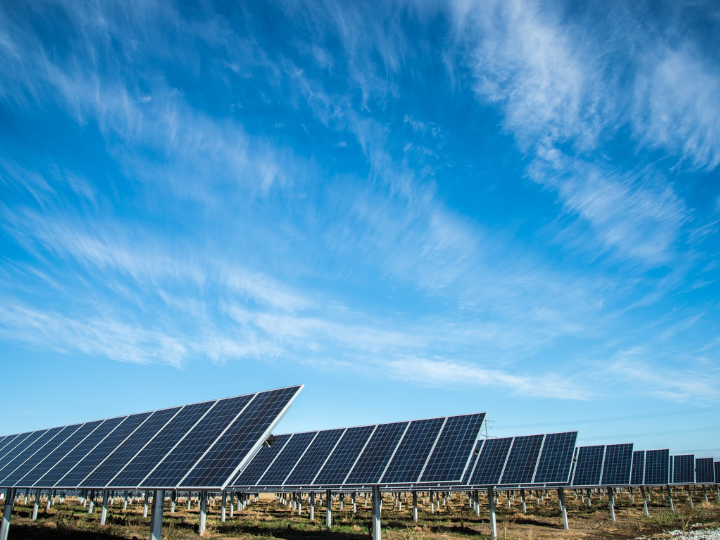by Paige Bennett*
Scientists from the University of Surrey and Imperial College London have achieved an increase in energy absorption in ultra-thin solar panels by 25%, a record for panels of this size.
The team, which collaborated with AMOLF in Amsterdam, used solar panels just one micrometer thick with a disordered honeycomb layer on top of the silicon panel. The biophilic design draws inspiration from butterfly wings and bird eyes to absorb sunlight from every possible angle, making the panels more efficient.
The research led to a 25% increase in levels of energy absorption by the panels, making these solar panels more efficient than other one-micrometer-thick panels. They published their findings in the American Chemical Society’s journal, Photonics.
“One of the challenges of working with silicon is that nearly a third of light bounces straight off it without being absorbed and the energy harnessed,” said Marian Florescu from the University of Surrey’s Advanced Technology Institute (ATI) in a statement. “A textured layer across the silicon helps tackle this and our disordered, yet hyperuniform, honeycomb design is particularly successful.”
The panels in the study reached absorption levels of 26.3 mA/cm2, compared to a previous absorption record of 19.72 mA/cm2 from 2017.
Increasing the efficiency and absorption of ultra-thin panels is crucial to achieving low-cost photovoltaics.
“Micrometer-thick silicon photovoltaics (PV) promises to be the ultimate cost-effective, reliable, and environmentally friendly solution to harness solar power in urban areas and space, as it combines the low cost and maturity of crystalline silicon (c-Si) manufacturing with the low weight and mechanical flexibility of thin films,” the authors of the study explained.
The researchers expect that more design improvements will push the efficiency of macrometer-thin panels even higher, and they will be able to compete with existing commercial solar panels. Plus, these flexible panels could offer versatility in how they are used.
“There’s enormous potential for using ultra-thin photovoltaics. For example, given how light they are, they will be particularly useful in space and could make new extra-terrestrial projects viable,” Florescu said. “Since they use so much less silicon, we are hoping there will be cost savings here on Earth as well, plus there could be potential to bring more benefits from the Internet of Things and to create zero-energy buildings powered locally.”
Outside of photovoltaics, the research could also be useful for other industries, like photo-electrochemistry, solid-state light emission and photodetectors, that focus on light management.
Following the successful absorption rate increase of the ultra-thin panels in this study, the scientists plan to start looking for commercial partners and develop a plan for manufacturing.
*Writer, EcoWatch
**first published in: www.weforum.org




 By: N. Peter Kramer
By: N. Peter Kramer
